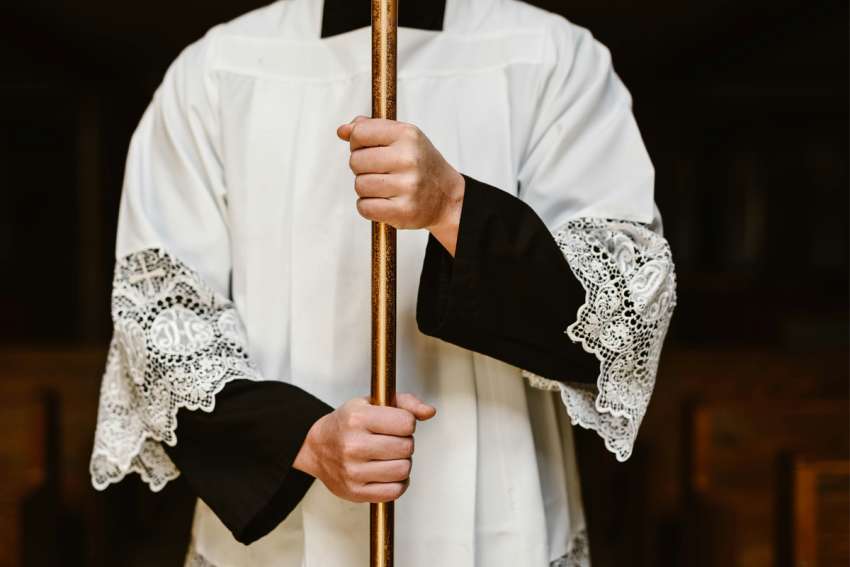Now, several weeks into my new position, I say I am an “altar grandpa.”
Given my memory issues, learning new job duties was a challenge. I spent the first few weeks recording everything I was told to do before creating a checklist of duties to set up for Mass, duties after Mass and at the end of the day. This accommodation, as well as the understanding of my new co-workers, has worked well.
There is much I enjoy about my new work. Each day I attend Mass, often multiple times. The repetition of the Mass and the frequent reciting of prayers have allowed me to go deeper in my own reflection. One aspect of a funeral that has been thought-provoking is listening to loved ones speak about their deceased relatives.
I have found many reflections compelling. They have taken me back to the Christian remembrances I offered for my own parents. As I recall, I had been advised during a Catholic funeral that the focus is to be primarily on how the deceased lived loving God and neighbour. Fortunately, preparation for my parent’s remembrance was an easy exercise given that their Catholic faith had been their strong foundation. There was no stretching required.
As I listen to the words of others, I reflect on what I would want my loved ones to say when it is time for my Christian remembrance. Certainly, I would want the person to speak to how The Bride was the love of my life, followed closely by my six children, the ones they love and our many dear friends. Then I would want them to get to the crux: “The old man did his best to live the two great commandments. He loved God with all his mind, heart, soul and strength, and his neighbour as himself. It was dad’s faith that enlivened everything he did, most of the time.”
I would be okay if whoever spoke reflected, “Yes there was suffering.” Whether it was memory loss and the associated losses of employment, income, a place to go each day, rheumatoid arthritis and its daily pill regime, or all those goodbyes one experiences as one ages, I have felt at times as if God has been slowly taking me apart. But then I would want my loved one to say, “Because dad believed in an all-loving God, he was able to live differently. He didn’t so much focus on his losses as on how loving God and neighbour had filled most of his days with purpose and an abundance of joy.”
They could add, “Dad also knew that when suffering did show up, he could join his suffering with Jesus’ for the sake of others. Because of dad’s leaky memory, he maintained a written down prayer list to which he added anyone who asked for his prayers, or for whom he said he would pray. It served as his portable memory, and it worked well enough.”
I think I will pass this article on to my six children. It might save confusion about what to say when it’s time for their father’s and mother’s last goodbye.
(McAvoy is co-author with his wife, Jennifer, of the book Faith, Love and Loss; Sustaining Hope amid Memory Loss and the Storms of Life, published by Novalis.)


